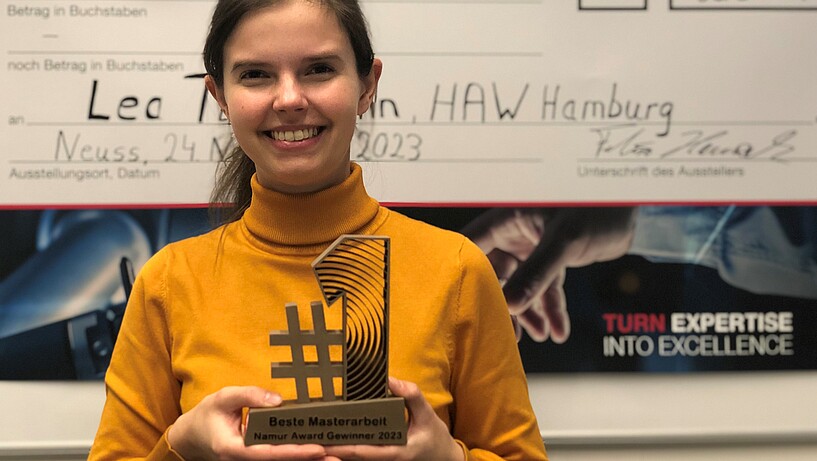If you are looking for solutions to the climate crisis, you won't get far without process engineering. This is how Prof. Dr. Margret Bauer, professor of automation engineering in the Department of Process Engineering, summarises the area of application: 'We're seeing that we're barely making progress with the strategies against climate change. Process engineering is one of the few disciplines actually working on solutions – no heat pump or other technological solution will function without process engineering. And alongside CO2 savings and mindful consumption, we also need technological innovations to overcome the crisis.'
Prize-winning thesis on automation engineering

Lea Tiedemann, a process engineering Master's graduate from the Faculty of Life Sciences, was awarded the NAMUR award for the best thesis in automation engineering in Germany on 24 November 2023.
We're seeing that we're barely making progress with the strategies against climate change. Process engineering is one of the few disciplines actually working on solutions – no heat pump or other technological solution will function without process engineering.
After obtaining her Bachelor's degree in process engineering, Lea Tiedemann focused on automation engineering while studying for her Master's in process engineering. Her Master's thesis was titled 'Development and Implementation of a Constraint Detection Tool for Industrial Process Data'. 'In my Master's thesis I developed a solution that enabled industrial firms to use data to optimise processes, without additional hardware. To do this, I analysed data from companies, improved existing algorithms and programmed a software product that provides concrete solutions.'
In her thesis, the Master's student demonstrated how the field of process engineering has continued to develop over recent years and how an understanding of digitalisation processes and individual programming skills have come to play an increasingly significant role alongside knowledge of the hardware. 'The days when company employees manually opened and closed a few valves are long gone. Especially in the area of automation engineering, which I supervise, the processes are automated – as the name indicates. This means that process disruptions can be prevented or it is possible to react directly,' says Prof. Dr. Margret Bauer. 'To ensure that tomorrow's skilled workers have this know-how, we focus on software skills in the Master's degree course. Our students can gain experience through direct practical work with renowned companies, like Lea Tiedemann did for her thesis.' The recognition of her thesis with the NAMUR award, awarded by NAMUR, the international association for users of automation and digitalisation technologies in the process industry, shows the importance of digitalisation for process engineering.
In my Master's thesis I developed a solution that enabled industrial firms to use data to optimise processes, without additional hardware.
If you are interested in applying for the Master's degree course in process engineering you should ideally have a Bachelor's degree in process engineering and good English skills. Because this is one of the few Master's degree courses of its kind in Germany, it is worth having a look at the application deadlines well ahead of time: applications for winter semester 2024/25 can be submitted as of 1 April 2024. Additional information about the degree course is available on the HAW Hamburg website.
